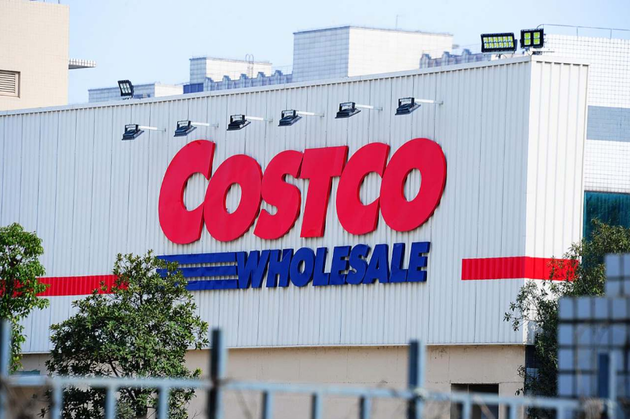
Aug. 28 (NBD) – U.S. membership-only retailer Costco Wholesale Corporation (NASDAQ:COST) said on Wednesday it will limit the number of shoppers at its maiden store on the Chinese mainland after overcrowding forced the U.S. big box retailer to shut it early on the opening day.
On Tuesday, shoppers swarmed to the Costco store in Shanghai's Minhang district. National Business Daily (NBD) noticed on the scene that thousands of people were crowding the aisles of the store, while signs outside warned incoming shoppers that they might have to wait for a long queue to park.
Stock of Costco soared by 5 percent to close at 292.38 U.S. dollars per share on the day.
It's noted that the craze continued on Wednesday, when crowds of consumers lined up hours ahead of the opening time, and it took approximately 70 minutes to enter the store.

Photo/Weibo
Opening-day frenzy
"If Costco forays the Chinese mainland, the whole mainland retail industry will be severely challenged," once predicted Ye Guofu, founder of Chinese low-cost retailer Miniso. The forced suspension on Costco's Tuesday debut due to overcrowding seemed to prove the view.
Pictures successively surfaced on China's Twitter-like social media platform Weibo showing thousands of shoppers jostled to get their hands on everything from fresh meat to big-screen TVs and giant teddy bears.
By noon, as also shown in online photos, a Costco staff member was discouraging consumers from queuing up to get into the store, saying at least three hours were needed to find a space in the parking lot and another two hours for checkout.
Some Weibo users jokingly compared the frantic situation to China's Spring Festival travel rush, "the largest annual human migration in the world".
When the store became too crowded to stay open, Costco suspended the business in the afternoon due to "heavy traffic and customer flows".
In a field visit to Costco, NBD saw several consumers asking for either entry or compensations in anger.
It's noted that before the opening of the outlet, Costco lures customers with a discounted annual membership premium and has garnered over 10,000 members since July 1.
Costco later announced that it will limit the number of buyers in the outlet at around 2,000 starting from Wednesday.
Why does the membership-only store bring such a storm in China's retail market? The down-to-earth reason lies in the bargains. Costco formerly revealed that food products in the store are 10-20 percent cheaper than those on the market whilst other products are 30-60 percent cheaper.
NBD observed Shanghai's strong capacity in retail consumption might be another reason. According to a latest report on China's retail market, as of this August, Shanghai ranked first across China in terms of retail index, a metrics based on the number of retail shops opened.

Rivalry from Sam's Club
Although Costco is the pioneer of membership-only retail store, the first of its kind that came to China is Costco's old rival Sam's Club owned by American retail giant Walmart Inc. Currently Sam's Club has opened 26 outlets in China, with more than 2 million members.
The annual membership fee of Sam's Club is 260 yuan, slightly lower than 299 yuan of Costco. Sam's Club also deployed cloud warehouses and provided delivery services to adapt to Chinese consumers' changed habits.
"Costco features low prices of products," Zhang Sihan, chief executive for the Asian region of Costco, said in a media interview, adding that the retailer has the lowest gross margin, which is below 14 percent.
It's worth noting that Costco handles around 4,000 SKU (stock keeping unit), while most supermarkets operate 30,000. A lower SKU could save customers time to choose and also save the retailers purchasing and management costs, according to Zhang.
Hu Chuncai, general manager at consulting firm UI Sharing, told NBD that it posts high requirements on Costco's supply chain in China to stay low-cost, since most products with lower prices in Costco are imported ones.
In Hu's view, there're limited choices in the store due to small number of SKU and Costco mainly provides frozen food, while Chinese consumers prefer fresh and diversified food, which might not meet Chinese consumers' demand.
Hu added that Costco will face problems to largely promote membership system which is still at an early development stage in China. "It should adapt to Chinese customers' changing habits to gain a foothold in the market," Hu suggested.
Email: gaohan@nbd.com.cn


 川公网安备 51019002001991号
川公网安备 51019002001991号





